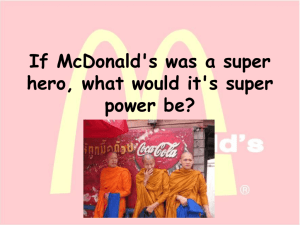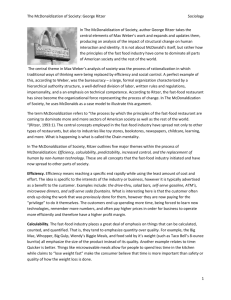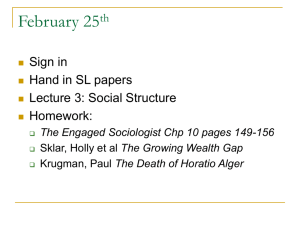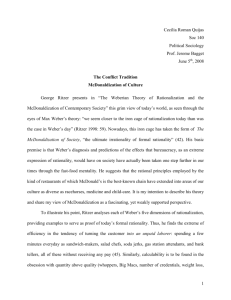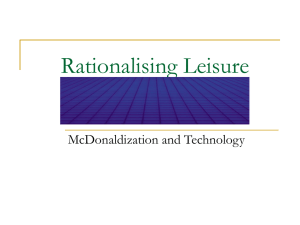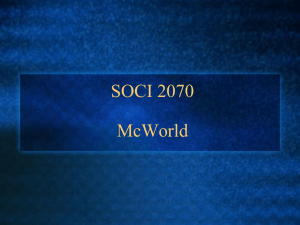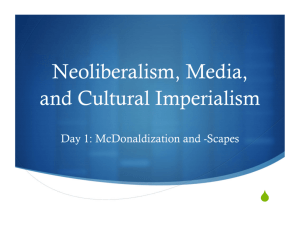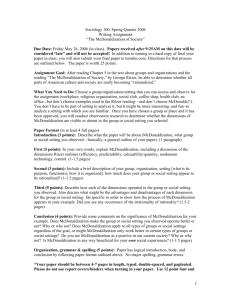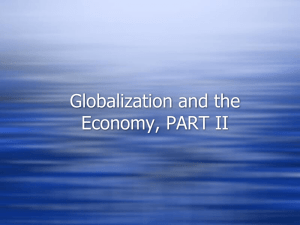McDonaldization - teamlearnLIVE.com
advertisement
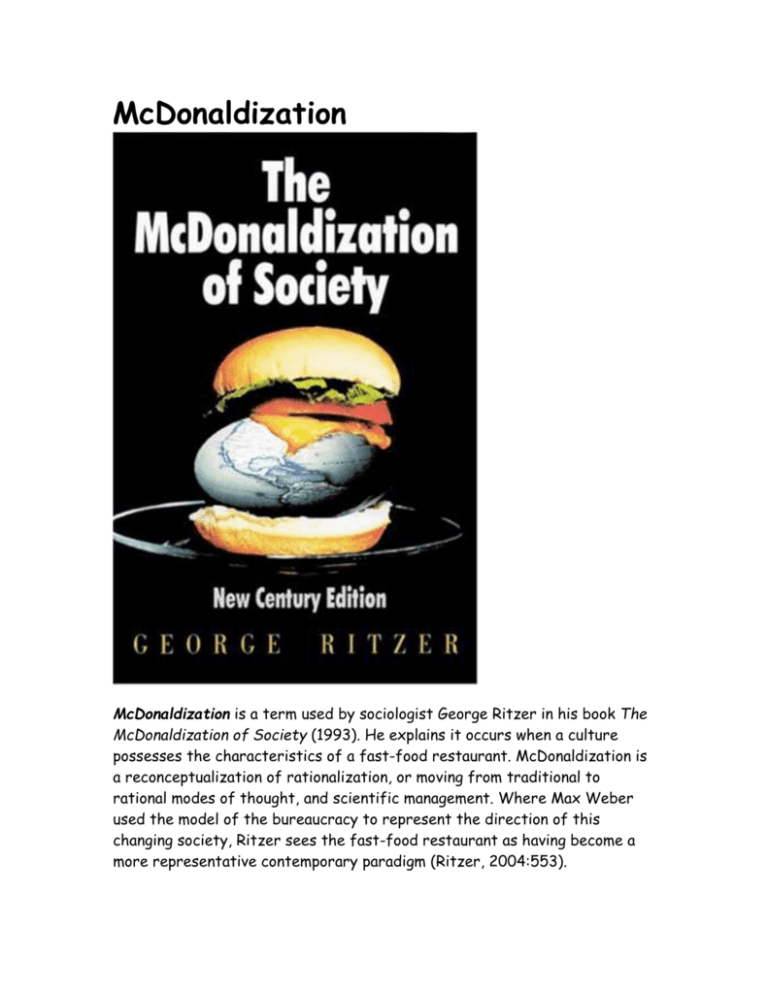
McDonaldization McDonaldization is a term used by sociologist George Ritzer in his book The McDonaldization of Society (1993). He explains it occurs when a culture possesses the characteristics of a fast-food restaurant. McDonaldization is a reconceptualization of rationalization, or moving from traditional to rational modes of thought, and scientific management. Where Max Weber used the model of the bureaucracy to represent the direction of this changing society, Ritzer sees the fast-food restaurant as having become a more representative contemporary paradigm (Ritzer, 2004:553). Aspects Ritzer highlighted four primary components of McDonaldization: Efficiency – the optimal method for accomplishing a task. In this context, Ritzer has a very specific meaning of "efficiency". Here, the optimal method equates to the fastest method to get from point A to point B. In the example of McDonald's customers, it is the fastest way to get from being hungry to being full. Efficiency in McDonaldization means that every aspect of the organization is geared toward the minimization of time.[1] Calculability – objective should be quantifiable (e.g., sales) rather than subjective (e.g., taste). McDonaldization developed the notion that quantity equals quality, and that a large amount of product delivered to the customer in a short amount of time is the same as a high quality product. This allows people to quantify how much they're getting versus how much they’re paying. Organizations want consumers to believe that they are getting a large amount of product for not a lot of money. Workers in these organizations are judged by how fast they are instead of the quality of work they do.[1] Predictability – standardized and uniform services. "Predictability" means that no matter where a person goes, they will receive the same service and receive the same product every time when interacting with the McDonaldized organization. This also applies to the workers in those organizations. Their tasks are highly repetitive, highly routine, and predictable.[1] Control – standardized and uniform employees, replacement of human by non-human technologies With these four processes, a strategy which is rational within a narrow scope can lead to outcomes that are harmful or irrational. The process of McDonaldization can be summarized as the way in which "the principles of the fast-food restaurant are coming to dominate more and more sectors of American society as well as of the rest of the world."[2] Irrationality of Rationality Ritzer also outlines Irrationality of Rationality as fifth aspect of McDonaldization. "Most specifically, irrationality means that rational systems are unreasonable systems. By that I mean that they deny the basic humanity, the human reason, of the people who work within or are served by them." (Ritzer 1994:154) Ritzer introduces this during Chapter Two (The Past, Present, and Future of McDonaldization: From the Iron Cage to the Fast-Food Factory and Beyond) of his book "The McDonaldization of Society" in the sub-section Irrationality and the "Iron Cage." He states that "Despite the advantages it offers, bureaucracy suffers from the irrationality of rationality. Like a fast-food restaurant, a bureaucracy can be a dehumanizing place in which to work and by which to be served." In short; "settings in which people cannot always behave as human beings" He further states that beyond dehumanization further irrationalities emerge; including the inefficient masses of red tape, over quantification leading to low quality work, unpredictability as employees grow unclear about what they are supposed to do, or the loss of control due to other inadequacies. De-McDonaldization In subsequent publications, Ritzer conceptualized a cultural process he labeled "de-McDonaldization" as a reaction to McDonaldization, and cited modern baseball stadiums with simulated nostalgic features as one example of this phenomenon. Response of McDonald's The response from McDonald's, expressed by its representatives in the United Kingdom, is that Ritzer, like other commentators, uses the company's size and brand recognition to promote ideas that do not necessarily relate to the company's business practices.[3]
